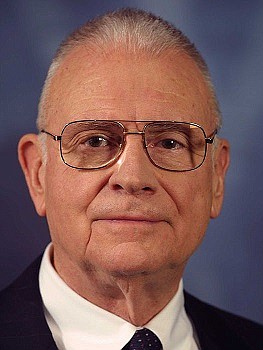March 27, 2023 at 12:55 p.m.
By Lee Hamilton-
We Americans tend to think it’s self-evident that our system of government is superior. We value the freedom, independence and individual rights that are part of our democratic system. We take for granted that we should elect our leaders and hold them accountable.
But we should not assume everyone will see democracy the way we do. Yes, the desire for freedom and self-determination is universal, and rights are essential. But if people don’t see that democracy will improve their day-to-day lives, they may be susceptible to the appeal of authoritarianism.
Samantha Power, the administrator of the U.S. Agency for International Development, points this out in a recent essay in Foreign Affairs, titled “Democracy Can Win.” For several decades, she argues, we have focused the promotion of democracy too narrowly on rights and freedoms and given short shrift to economic hardship and inequality. She calls for a new approach, “one that addresses the economic grievances that populists have so effectively exploited.”
Not long ago, it seemed that democracy could take root and grow naturally. After the collapse of the Soviet Union, newly independent democratic states emerged in Eastern Europe. China became an enthusiastic participant in global markets, mixing capitalism with state control and opening itself to the world.
But those trends didn’t hold. Russia turned aggressive and hostile, and its imperious president, Vladimir Putin, all but eliminated dissent and democratic opposition. Something similar happened in China, where Xi Jinping cemented Communist Party rule and has threatened Taiwan and other neighbors. Elsewhere, populist and far-right parties gained sway. Even American democracy wavered when Donald Trump refused to accept the 2020 election results and his supporters invaded the Capitol on Jan. 6, 2021.
But Congress certified the election, Joe Biden became president, and U.S. democracy endured. Meanwhile, Putin and Xi overplayed their hands. Putin miscalculated that Russia’s invasion of Ukraine would be quick and easy, but Ukraine’s brave resistance has inspired the world and left Russia isolated. International surveys find most people in multiple countries have a negative opinion of Russia, often very negative. China angered its citizens with its harsh zero COVID policy, which interfered with trade and weakened the economy. When China lifted the policy late last year, infections and deaths spiraled.
As Power writes, these developments should create an opening for the United States and its allies to promote democracy and share its benefits. But Russia and China still have friends. In a recent U.N. Security Council vote, 35 nations, including important democracies like India and South Africa, abstained from denouncing Russia’s invasion of Ukraine and calling for it to withdraw.
China, once one of the largest recipients of foreign aid, is now a major source of development assistance, which it uses to wield influence, especially in Africa. Much of the aid is in the form of loans – the World Bank estimates that China holds 40% of the debt owed by the world’s poorest countries – making developing nations dependent on China.
Power writes that USAID is trying to “break down the wall the separates democratic advocacy from economic development.” It is targeting assistance to emerging, fragile democracies. It is taking steps to address the root causes of corruption; promote civil society, the rule of law and a free press; and counter digital authoritarianism and misinformation. This month, the U.S. will co-host, with Costa Rica, the Netherlands, South Korea and Zambia, a global Summit on Democracy.
President Ronald Reagan said 40 years ago that democracy is not “a fragile flower” but that it still “needs cultivating.” That’s a good description of the state of democracy today. It’s up to us to promote democracy – to cultivate it – in ways that benefit all people.
** Lee Hamilton is a senior adviser for the Indiana University Center on Representative Government; a distinguished scholar at the IU Hamilton Lugar School of Global and International Studies and a professor of practice at the IU O’Neill School of Public and Environmental Affairs. He was a member of the U.S. House of Representatives for 34 years.

